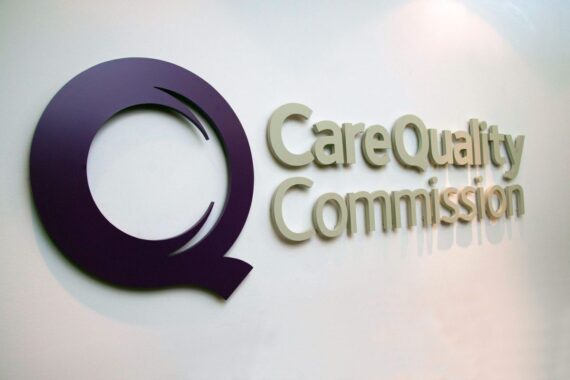Review recommends customised regulation for small GP practices

A Government-commissioned review into patient safety has recommended a customised approach to regulation for small GP practices.
The Dash review into patient safety, published today by the Department of Health and Social Care, also called for greater use of AI to identify poor care – a recommendation that has been adopted in the 10-year plan for the NHS.
The Review of Patient Safety Across the Health and Care Landscape, which looked at CQC amid the wider safety inspection regime, warned that the current system of oversight remains overly complex, duplicative and often ineffective in driving improvement.
While reaffirming the CQC’s role as the independent regulator, the report highlights that a one-size-fits-all approach is failing to account for the structural and resourcing constraints in small GP surgeries.
‘For some providers, their small size makes it hard to put in place governance structures – for example, in smaller GP and dental practices,’ the review said.
It recommends that the CQC should ‘offer a more customised approach’ to assessing these providers, calling for tailored inspection frameworks by sector and within sectors.
‘For those (usually smaller) organisations where lack of governance structures may be more of an issue… [CQC] should offer a more customised approach,’ the report said.
Under the new proposals, CQC would continue assessing providers against five quality domains, but would be expected to draw on detailed data to target risks, and take provider size into account.
The report also advocates for a major expansion in the use of AI and analytics to identify unsafe or poor-quality care.
‘Advanced analytics and AI would enable far greater insights into where and why poor-quality care is happening – and at significantly lower cost,’ it said.
‘To achieve this, data needs to be high quality, easily shareable and accessible by all organisations, patients and users, and the wider public.’
This could include real-time data platforms that empower commissioners and regulators to pinpoint areas of concern, including within primary care.
The review was asked to investigate the effectiveness of six organisations responsible for assuring or improving care safety including the CQC, Health Services Safety Investigations Body (HSSIB), Patient Safety Commissioner, National Guardian’s Office, Healthwatch England and Local Healthwatch, and the patient safety learning aspects of NHS Resolution.
This followed on from Dr Dash’s review of the CQC’s operational effectiveness, published in October last year.
That review found ‘significant failings in the internal workings’ of the regulator leading to ‘a substantial loss of credibility within the health and social care sectors’.
Poor operational performance led to a reduction in the CQC’s ability to scrutinise healthcare providers including GPs, with 6,700 inspections and assessments carried out in 2023 compared with almost 15,800 in 2019, according to the review.
The RCGP called for a halt to inspections in response to the findings but this was not acted upon.
Dash review recommendations
- Revamp, revitalise and significantly enhance the role of the National Quality Board
- Continue to rebuild the Care Quality Commission (CQC) with a clear remit and responsibility
- Continue the Health Services Safety Investigation Body’s role as a centre of excellence for investigations and clarify the remit of any future investigations
- Transfer the hosting arrangement of the Patient Safety Commissioner to the Medicines and Healthcare products Regulatory Agency (MHRA), and broader patient safety work to a new directorate for patient experience within NHS England, transferring to the new proposed structure within DHSC
- Bring together the work of Local Healthwatch, and the engagement functions of integrated care boards (ICBs) and providers, to ensure patient and wider community input into the planning and design of services
- Streamline functions relating to staff voice
- Reinforce the responsibility for and accountability of commissioners and providers in the delivery and assurance of high-quality care
- Technology, data and analytics should be playing a far more significant role in supporting the quality of health and social care
- There should be a national strategy for quality in adult social care, underpinned by clear evidence.
Source: Review of patient safety across the health and care landscape












